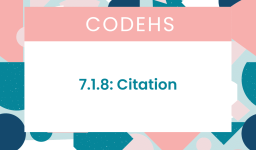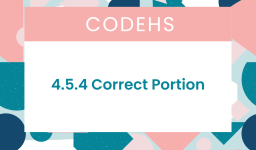Dyslexic is a term often applied to a large subset of poor readers. These readers’ difficulties with accurate, fluent word recognition originate primarily with deficits in which of the following?
This question is a part of the LETRS Unit 1 Session 1-8 Check For Understanding answers.
Answer
Phonological Processing.
Phonological processing refers to the use and awareness of sounds (or phonemes) in one’s language. It encompasses several skills:
- Phonological Awareness: This is the ability to recognize and manipulate the sounds of spoken language, such as rhyming, blending sounds into words, and segmenting words into their constituent sounds.
- Phonemic Awareness: A subset of phonological awareness, it’s the specific ability to focus on and manipulate individual phonemes in spoken words.
- Phonological Memory: The ability to remember spoken information for a short period.
- Rapid Naming: The ability to quickly name a sequence of random letters, numbers, colors, or objects.
Relation to Dyslexia
- Deficit in Phonological Awareness: Most research supports the theory that a core deficit in dyslexia is a reduced phonological awareness. This means that individuals with dyslexia often struggle to recognize and manipulate the sounds in words. This can lead to difficulty in decoding words (turning letters into sounds) and spelling.
- Difficulty with Phonemic Awareness: Because dyslexics often struggle to distinguish or manipulate sounds in words, tasks like blending sounds to make words or segmenting words into sounds can be challenging.
- Problems with Phonological Memory: Individuals with dyslexia may find it challenging to remember spoken information, which can impact their ability to match sounds with symbols (letters).
- Slow Rapid Naming: Some individuals with dyslexia exhibit a slow rapid naming speed, which is believed to be related to reading fluency.
Source
- Shaywitz, S. E., & Shaywitz, B. A. (2008). Paying attention to reading: The neurobiology of reading and dyslexia. Development and Psychopathology, 20(4), 1329-1349.
By understanding the crucial role of phonological processing and its sub-components, it becomes clearer why dyslexic individuals often struggle with accurate and fluent word recognition. The key to helping dyslexic learners often revolves around addressing these phonological challenges directly through targeted interventions.



